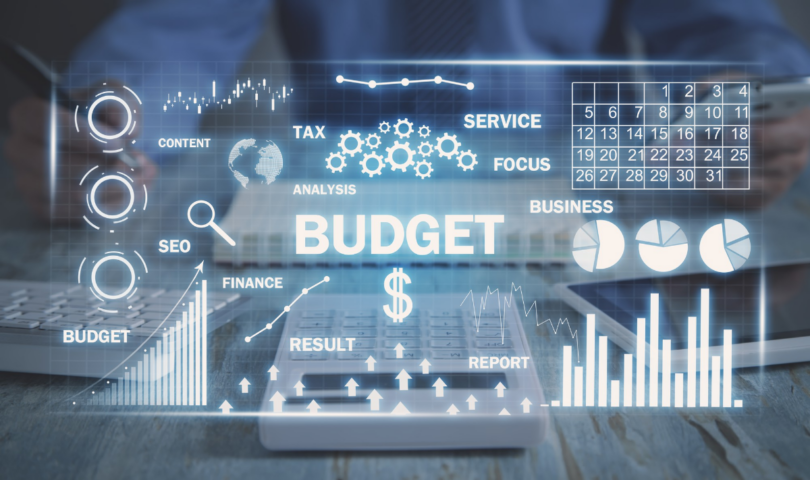Learning to manage your finances doesn’t have to be complicated. Whether you’re just starting out or want to get a handle on your money, mastering budgeting can set the stage for financial stability. In this guide, we’ll explore 25 of the best budget tips and hacks for beginners. These practical suggestions can help you save money effectively and make wise financial decisions. Let’s dive into the world of budget tips and uncover ways you can achieve your financial goals without feeling overwhelmed.
Why Budgeting is Crucial for Financial Success
Creating and sticking to a budget is one of the most essential life skills, yet many people overlook its importance. Budgeting helps you track your spending, reduce unnecessary expenses, and build savings over time. By having a clear picture of where your money goes, you can make smarter decisions about your spending habits. More importantly, setting a budget encourages financial discipline, which is crucial for long-term stability.
Start with a Realistic Budget
The first step to successful budgeting is creating a budget that fits your lifestyle. Start by listing your monthly income and subtracting your essential expenses such as rent, utilities, and groceries. After you have your core expenses covered, determine how much you want to save and what’s left for discretionary spending. The goal is to have a budget that balances your needs and savings goals while still leaving room for enjoyment.
Track Every Penny You Spend
One of the most effective budget tips is to track every dollar you spend. Whether you use an app, spreadsheet, or even a notebook, having a record of your expenses will show you where your money is going. You may discover that seemingly small purchases, like daily coffees or dining out, add up quickly. By knowing exactly where your money goes, you can find areas to cut back and save money.
Use the 50/30/20 Budgeting Rule
A simple yet effective budgeting rule is the 50/30/20 rule. This budgeting strategy suggests that 50% of your income should go toward essentials, 30% for discretionary spending, and 20% for savings or debt repayment. For beginners, this method offers a flexible approach to managing your finances without feeling restricted. If you’re finding it hard to stick to a budget, this strategy can help you allocate funds in a structured way.
Automate Your Savings
One of the best hacks for beginners is to automate your savings. Setting up an automatic transfer from your checking to your savings account every payday ensures that you consistently save without even thinking about it. Even small amounts can add up over time, helping you build an emergency fund or save for larger financial goals.
Cook at Home More Often
Dining out is convenient but expensive. One of the easiest ways to save money is to cook at home more often. Meal planning and preparing food in bulk can significantly reduce your monthly food expenses. Not only will you save money, but you’ll also have better control over your diet, which can lead to health benefits as well.
Buy in Bulk for Non-Perishables
Buying items like toilet paper, toothpaste, and non-perishable food items in bulk can save you a lot over time. Bulk purchasing allows you to take advantage of discounts and stock up on essentials, reducing the number of trips to the store and impulse purchases. This is one of those simple yet effective budget tips that makes a noticeable difference in your spending.
Embrace DIY for Home and Personal Care
Why pay for services you can easily do yourself? Many people spend hundreds of dollars on things like manicures, haircuts, and home cleaning services. Consider doing some of these tasks yourself. Learning simple DIY techniques for home maintenance or personal care can save you hundreds, if not thousands, of dollars every year. YouTube is a treasure trove of tutorials that can turn you into a DIY pro in no time.
Set Clear Financial Goals
Without a clear destination in mind, it’s hard to know if you’re on the right financial path. Setting financial goals—whether it’s saving for a vacation, paying off debt, or building an emergency fund—gives you a sense of purpose when budgeting. Break larger goals down into smaller, manageable steps, and track your progress regularly. This keeps you motivated and ensures you stay on track.
Cut Unnecessary Subscriptions
It’s easy to forget about the subscriptions we sign up for, especially if the payments are small. However, these can add up quickly. Review your monthly subscriptions and cancel any you no longer use. Streaming services, gym memberships, and subscription boxes might be costing you more than you realize. This is one of the easiest budget hacks for beginners to implement, and it can free up money for more important expenses or savings.
Use Cashback and Reward Programs
Many credit cards, apps, and retailers offer cashback and reward programs. These programs give you a percentage back on your purchases or reward points that can be redeemed for various items or discounts. While it’s important to avoid overspending, leveraging cashback and rewards can help you save money on everyday purchases.
Create a Fun Fund
Budgeting doesn’t mean depriving yourself of fun. In fact, one of the best hacks for beginners is to create a fun fund. Set aside a small amount of money each month for activities or purchases that bring you joy, like dining out, movies, or hobbies. This way, you won’t feel guilty about spending on fun experiences because it’s already part of your budget.
Use the Envelope System
The envelope system is a popular method for those who prefer using cash. It involves setting aside physical envelopes for different budget categories, like groceries, entertainment, and savings. When the cash in an envelope runs out, you can’t spend more in that category until the next month. This method is a hands-on way to manage spending and avoid overspending on non-essentials.
Avoid Impulse Buying
Impulse purchases can quickly derail your budget. One of the best budget tips is to practice mindful shopping. Before making a purchase, give yourself a cooling-off period—whether it’s a day, a week, or even a month. This pause will help you determine whether the item is truly necessary or just a fleeting desire.
Take Advantage of Sales and Discounts
Always be on the lookout for sales, discounts, and coupons. You can save a significant amount of money by planning your purchases around sales events or using coupons. Make sure to stock up on essentials when they go on sale and avoid buying items at full price whenever possible. This hack for beginners can stretch your budget further without sacrificing quality.
Negotiate Bills and Services
Did you know that many bills, like cable, internet, and even medical services, are negotiable? Don’t be afraid to contact service providers and ask for a better rate. You’d be surprised at how often companies are willing to reduce your bill or offer promotions to retain customers. Taking the time to negotiate can help you save money every month.
Start a Side Hustle
If your current income doesn’t cover your expenses or savings goals, consider starting a side hustle. Whether it’s freelancing, selling handmade goods, or driving for a ride-share service, a side hustle can provide extra income to boost your budget. This is one of the most effective budget tips for those looking to increase their earning potential.
Use Budgeting Apps
Technology has made budgeting easier than ever. There are numerous apps available that can help you track expenses, categorize spending, and even suggest ways to save money. Many of these apps link directly to your bank accounts and credit cards, giving you a real-time view of your financial health. Using a budgeting app is a great way to stay organized and on top of your finances.
Pay Off High-Interest Debt First
Debt can quickly eat into your monthly budget, especially if you have high-interest loans or credit card debt. Prioritize paying off debts with the highest interest rates first to reduce the amount you pay in interest over time. Once high-interest debt is eliminated, you’ll free up more money to save or invest.
Shop with a List
Whether you’re buying groceries or clothes, shopping with a list helps you avoid unnecessary purchases. When you go to the store without a plan, you’re more likely to pick up items you don’t need. A list keeps you focused and ensures you only buy what you came for, helping you stick to your budget.
Consider Generic Brands
Many people are hesitant to buy generic brands, but the truth is that many of them are just as good as their name-brand counterparts. In fact, generic brands are often made by the same manufacturers, just with different packaging. Opting for generic products in areas like food, household supplies, and medication can help you save money without sacrificing quality.
Limit Credit Card Usage
Credit cards can be helpful tools when used responsibly, but they can also lead to overspending. Limit your credit card usage to essential purchases or situations where you know you can pay off the balance in full each month. This will help you avoid accruing interest and keep your debt levels under control.
Make Use of Free Entertainment
Entertainment is often one of the largest discretionary expenses, but it doesn’t have to be. There are plenty of free or low-cost activities to enjoy, like hiking, visiting museums on free admission days, or hosting a movie night at home. Being mindful of your entertainment spending can help you stick to your budget without feeling deprived.
Join a Community for Financial Accountability
Finally, consider joining a community or group that shares your financial goals. Whether it’s an online forum, social media group, or local meet-up, having a support system can keep you accountable and motivated. It’s easier to stick to your budget when you know others are on the same journey and can offer advice or encouragement.
Conclusion
Budgeting may seem daunting at first, but by implementing these 25 budget tips and hacks for beginners, you can take control of your finances and start saving money immediately. Whether you’re looking to reduce debt, build an emergency fund, or simply manage your spending better, these strategies will set you on the path to financial success. Stay committed, adjust your budget as necessary, and watch your savings grow!
FAQs
What is the 50/30/20 rule?
The 50/30/20 rule is a simple budgeting strategy where 50% of your income goes to needs, 30% to wants, and 20% to savings or debt repayment.
How can beginners save money?
Beginners can start saving money by tracking expenses, automating savings, and cutting unnecessary subscriptions. Small steps, like cooking at home and using budgeting apps, make a big difference.
What are some common budget hacks for beginners?
Common budget hacks include using the envelope system, shopping with a list, and buying in bulk. These simple strategies can help you reduce spending and avoid debt.
How do I stick to my budget?
Sticking to a budget requires discipline and regular tracking of your expenses. Using apps or spreadsheets and setting clear financial goals will help you stay on track.
Is it better to pay off debt or save money?
It’s generally recommended to pay off high-interest debt first while still saving a small emergency fund. Once high-interest debt is cleared, focus more on saving.
What’s the best way to budget with irregular income?
For irregular income, it’s best to budget based on your lowest expected monthly income. Treat any extra income as a bonus and allocate it to savings or debt repayment.








Leave a Comment